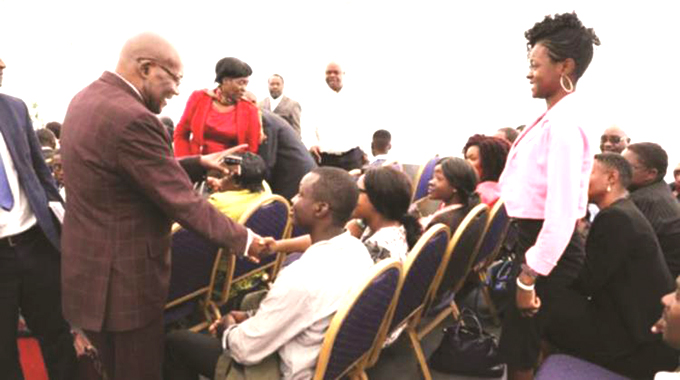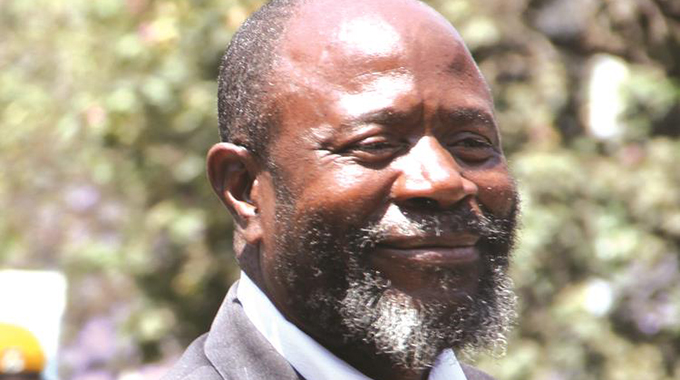Transparency vital in scholarship schemes

Monica Cheru-Mpambawashe Creative Editor
Taku, a young man who attained 15 points in Advanced Level Sciences and intends to become an engineer, says he will apply for the recently advertised Presidential and National Scholarships programme.
But his uncle is discouraging him from believing that the scholarships target able but disadvantaged pupils mainly from rural schools in remote districts of the country’s 10 provinces, wishing to pursue undergraduate and postgraduate studies at foreign universities.
“My uncle told me that only the children of connected people get the scholarships. There might be a few genuine disadvantaged and brilliant students added, but the majority are linked to someone high up one way or the other,” Taku said.
Sadly, this belief is shared by many Zimbabweans.
“I have personally accompanied some students over the years trying to get them onto the programme, but none of them has ever been taken in.
“We would line up at the building where the forms were to be procured and handed in, and I tell you it was chaotic.
“Some important people would just drive up in their big cars and get everything processed for them while we waited patiently in the queue only to walk away with nothing,” says a school head who was working in Manicaland Province at the time.
He said his school produced learners with outstanding results at A-Level who were clearly disadvantaged and should have benefitted from such initiatives, but never got the chance.
Some of these learners were on the Basic Education Assistance Module (BEAM) programme.
“Some eventually managed to scrap together enough resources to attend local universities and did okay for themselves. Others managed to get other sponsors to local and foreign institutions.”
Others, the school head continued, ended up going into teaching, nursing and the security forces because of a lack of choice.
“But these are students who had great potential and deserved the best opportunities. They should have benefitted from this scheme which was created to pick the cream from each province.”
The head said the Second Republic was gradually changing the way things were done by tackling corruption which is deeply entrenched in the culture of doing business in almost all areas of the civil service.
“There is still a long way to go. But at least the willpower to fight corruption seems to be at a much higher level than in the past years.
“I hope that the Presidential and National Scholarships programme is one such area where we will begin to see a difference,” the head said.
The headmaster said the rot was not just at scholarship level, but sometimes started in the schools.
“In some places, BEAM registration itself is skewed. Then there are other donor organisations that come in offering different forms of assistance in the form of fees, uniforms, books and sometimes even opportunities.
“You will find that it is not always the best students who get onto those programmes, but those with influence. It is sad because we are killing our country by suppressing those with the best potential while giving opportunities to the mediocre.”
A student studying abroad at the same institution with beneficiaries of the Presidential and National Scholarships programme says that it is easy to tell the genuine beneficiaries from the protégés of corrupt high-ranking Government officials:
“The poor students are serious about their studies. They have purpose and they work as hard as those of us who know that our parents back home are sacrificing to keep us in school. But the rich kids on scholarships are just here. They are the ones with a lot of money who bunk lessons and are active on the social scene. They are also the ones most likely to get into drugs and fail.
“I know of one boy on that scholarship scheme who had to leave the institution after our first year because he was just not serious. I hear he went to another university is Australia which is what he wanted in the first place. The story was that he was sulking that his parents had forced him to this institution which he thought was beneath him.”
There was some talk of unfairness in October last year after 224 students left for Russia under the Russia Bilateral Scholarship Programme and only six were from Matabeleland.
Presidential scholarship Programme Executive Director Dr Chris Mushohwe at the time defended the selection process saying, “It depends on the application of those who meet the Russian criteria. All the disciplines for Russia were on High Tech requiring high points in hard sciences,” he said.
I am not sure how many he convinced that all was above board.
But the fact that the public generally believes such allegations is indictment enough on the Presidential and National Scholarships Department.
Whether or not the allegations are true is another story.
Conversely, the Joshua Nkomo Scholarships offered by Higherlife Foundation have better public perception.
Parents, school authorities and learners have confidence that the foundation is fair in its selection and benefits those who deserve the opportunity most.
There are lessons to be learnt there.
To protect itself from accusations and perceptions of corruption and nepotism, the Presidential and National Scholarships Department only needs to do one thing, and one thing only: Be transparent about their processes.
It would be good if they could push into the public domain everything to do with the selection process.
After the deadline passes, they should publish the number of applications received by province and gender.
When placements are made, they should publish the names of the beneficiaries and where they are from.
In addition, we should also have follow ups on students through their learning and beyond.
We should know what percentage of them complete their studies and what they go on to accomplish. For me, this is a clear matter of public interest because it is a national programme using public funds.
We deserve to know what happens to the students whose sendoff ceremony images we see often in the media.
Are the stories of some of them being aimless drifters who flunk out true?
It is only through openness that the public can begin to have confidence in the Presidential and National Scholarships programme.









Comments